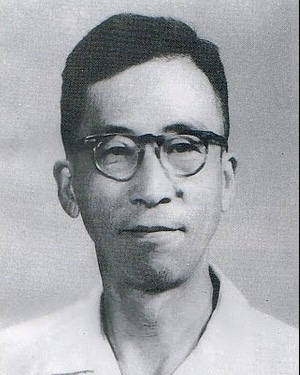Gu Zhun (1915-1974)was 12 when joined the accounting firm of Pan Xulun, the founder of China’s modern accounting. At the age of 15, he became the principal of the firm's correspondence school, and at the age of 18, he completed the book Accounting for Banks, which was the first textbook on bank accounting in China. In 1935, Gu Zhun joined the Communist Party of China; he was concerned about the fate of the country, and actively participated in the resistance to the Japanese aggression. After the war, he served as the director of the Shanghai Municipal Finance Bureau and the Shanghai Municipal Taxation Bureau. During the Three-Antis and Five-Antis Campaign in 1952, he was dismissed from his post because of his dissenting views on the taxation policy of the time. He insisted that taxes should be collected in accordance with the law, and did not agree with the methods based on self-reporting and democratic evaluation (*minzhu pingyi*). In 1956, he joined the Institute of Economics (now belonging to the Chinese Academy of Social Sciences) as a researcher, and became the first person to put forward the theory of China's socialist market economy with his article entitled "*On the Production of Commodities and the Law of Value under the Socialist System*”. Because of his dissatisfaction with the Rectification Movement and the Soviet Union, Gu Zhun was labeled a Rightist and expelled from the Party. He was exiled to work in labor camps in Hebei Province, and later Henan Province and a Beijing suburb, from 1958 to 1960. In 1962, Gu Zhun’s Rightist label was removed and he returned to the Institute of Economics. In September 1965, he was labeled an "Extreme Rightist" and exiled to Zhoukoudian in the suburbs of Beijing because he insisted on his political and economic ideas, including the importance of respecting the law of value. He was the only officially labeled "Second-time Rightist" in China. During the Cultural Revolution, Gu Zhun was repeatedly criticized and punished, and from 1969 to 1972 he was sent to work in the May Seventh Cadre School in Xi County, Henan Province. On December 3, 1974, he died of lung cancer in Beijing.
Gu Zhun always upheld the spirit of independent thinking. He not only made significant contributions to the field of economics in China, but also devoted himself to the study of politics, history and philosophy, translating several foreign classic works on economics and democracy and writing a large number of articles. As he personally experienced the Anti-Rightist Campaign, the Great Famine, and the Cultural Revolution, his diary is also considered a valuable source of information on these historical events. According to Wang Xiaolin's (see separate entry) book, *Gu Zhunun and His Times*, although Gu Zhun was not formally baptized as a Christian, he was exposed to Christianity since his childhood and had a deep understanding of Christianity. As Wang wrote in her preface: "His thoughts and behavior never departed from the pursuit and search for human nature, humanism, the laws of nature, the natural rights, namely the freedom and equal rights that all human beings were born with".
